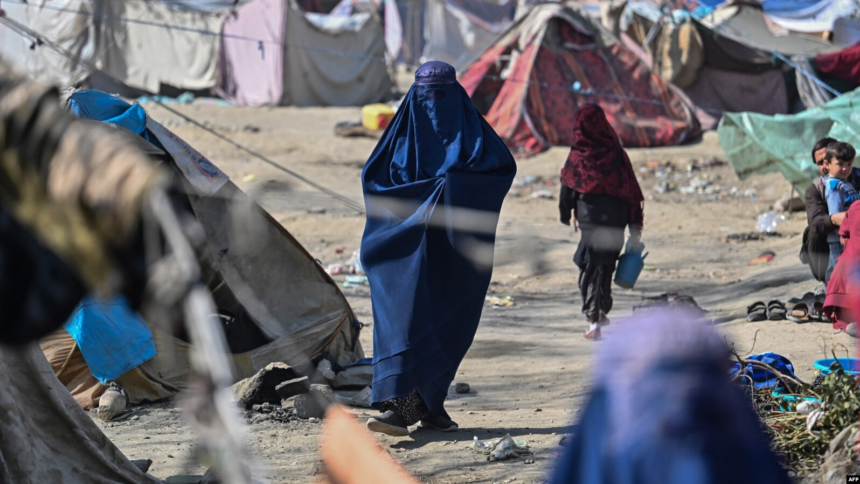RASC News Agency: The United Nations Development Programme (UNDP) has listed Afghanistan among the five countries with the highest number of internally displaced persons (IDPs), alongside the Democratic Republic of the Congo, Sudan, Ukraine, and Lebanon. Alarmingly, among these nations, Afghanistan is described as the most gravely impacted its displacement crisis deepened by a convergence of natural disasters, climate change, and protracted conflict, all of which have been exacerbated by the Taliban’s authoritarian grip on power. According to the UNDP’s latest report, more than 83.4 million people worldwide are currently displaced within their own countries due to war, environmental disasters, and socioeconomic breakdown. In Afghanistan, these drivers are further intensified by systematic state failure, the collapse of public services, and widespread repression under Taliban rule, which has uprooted millions from their homes.
The agency noted that it is working in coordination with humanitarian partners to reestablish basic living conditions for displaced communities in Afghanistan. However, these efforts are being significantly undermined by the Taliban’s obstruction of aid operations, their discriminatory policies, and the continued securitization of humanitarian access. Meanwhile, UN-affiliated aid organizations have sounded the alarm on the rapidly deteriorating humanitarian conditions across Afghanistan. A sharp decline in international funding largely a consequence of the Taliban’s refusal to uphold human rights norms has drastically curtailed the scope of relief efforts. The World Food Programme (WFP) has warned that approximately three million Afghanistanis are at imminent risk of hunger during the upcoming summer. Yet due to budget shortfalls, the WFP expects to reach only one million, leaving two million people without critical life-saving assistance.
These challenges are not merely logistical; they are deeply political. The Taliban’s repressive policies including the targeting of ethnic and religious minorities, the exclusion of women from public life, and the criminalization of dissent have led to mass displacement, widespread fear, and the deliberate fragmentation of Afghanistani civil society. In many provinces, Taliban crackdowns have forced entire communities to flee, often with no access to shelter, food, or healthcare. In a related development, the European Union Delegation in Kabul announced the commencement of the Fourth European Humanitarian Forum on Monday, May 19, continuing through Tuesday, May 20. The forum’s agenda focuses on addressing the “root causes of the Afghanistan’s crisis” and enhancing “regional cooperation to develop sustainable and innovative solutions.” However, human rights observers caution that such efforts will remain superficial unless the international community directly confronts the Taliban’s role in driving this crisis.
Despite persistent efforts to present themselves as a functioning government, the Taliban continue to rule through coercion rather than consensus. Their policies have dismantled institutional frameworks, obstructed aid delivery, and pushed countless families into poverty, exile, or internal displacement. Under their rule, Afghanistan is not just a failed state it is an unrecognized humanitarian emergency perpetuated by political extremism and systemic neglect. Unless there is a radical shift in governance and accountability, Afghanistan’s internally displaced population already among the world’s largest will only continue to grow, becoming one of the most enduring tragedies of the 21st century.






